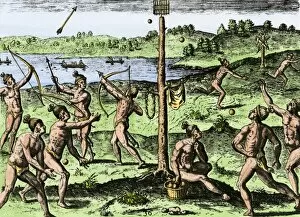Runner Collection (#8)
"From Olympic Glory to Everyday Pursuits: The Power of the Runner" In the realm of sports, runners have always been at the forefront
All Professionally Made to Order for Quick Shipping
"From Olympic Glory to Everyday Pursuits: The Power of the Runner" In the realm of sports, runners have always been at the forefront, showcasing their incredible speed and determination. One iconic moment that forever etched itself in history occurred during the 1968 Olympic Games in Mexico City. American athletes Tommie Smith and John Carlos boldly raised their fists in a Black Power salute during the medal ceremonies, symbolizing unity and resistance against racial injustice. Standing alongside them was Australian Peter Norman, wearing an OPHR badge as a powerful act of solidarity. The spirit of running has transcended various disciplines throughout time. Jackie Robinson, renowned baseball player for the Brooklyn Dodgers, showcased his agility on July 2nd, 1950 when he stole home under catcher Andy Seminick's tag during a game against the Philadelphia Phillies. This daring move not only displayed Robinson's exceptional skills but also challenged societal barriers. Harold Abrahams' victory in winning the 100m race at the 1924 Olympics exemplified perseverance and triumph over adversity. His accomplishment inspired generations to push beyond limits and strive for greatness. However, running isn't solely confined to grand stages like stadiums or Olympic arenas; it can be found even in everyday life. Pheidippides' legendary run from Marathon to Athens is still celebrated today as a testament to human endurance and dedication. Jogging along scenic routes such as France's Canal du Midi near Castelnaudary allows individuals to find solace amidst nature while improving their physical well-being. It reminds us that running is not just about competition but also about personal growth and serenity. One name that will forever be synonymous with breaking barriers is Roger Bannister –the first man who conquered the elusive sub-4 minute mile barrier on Iffley Road track. His achievement shattered preconceived notions of what was possible and opened doors for countless athletes worldwide. Eric Liddell brought glory to his nation by winning an Olympic gold medal in 1924.















